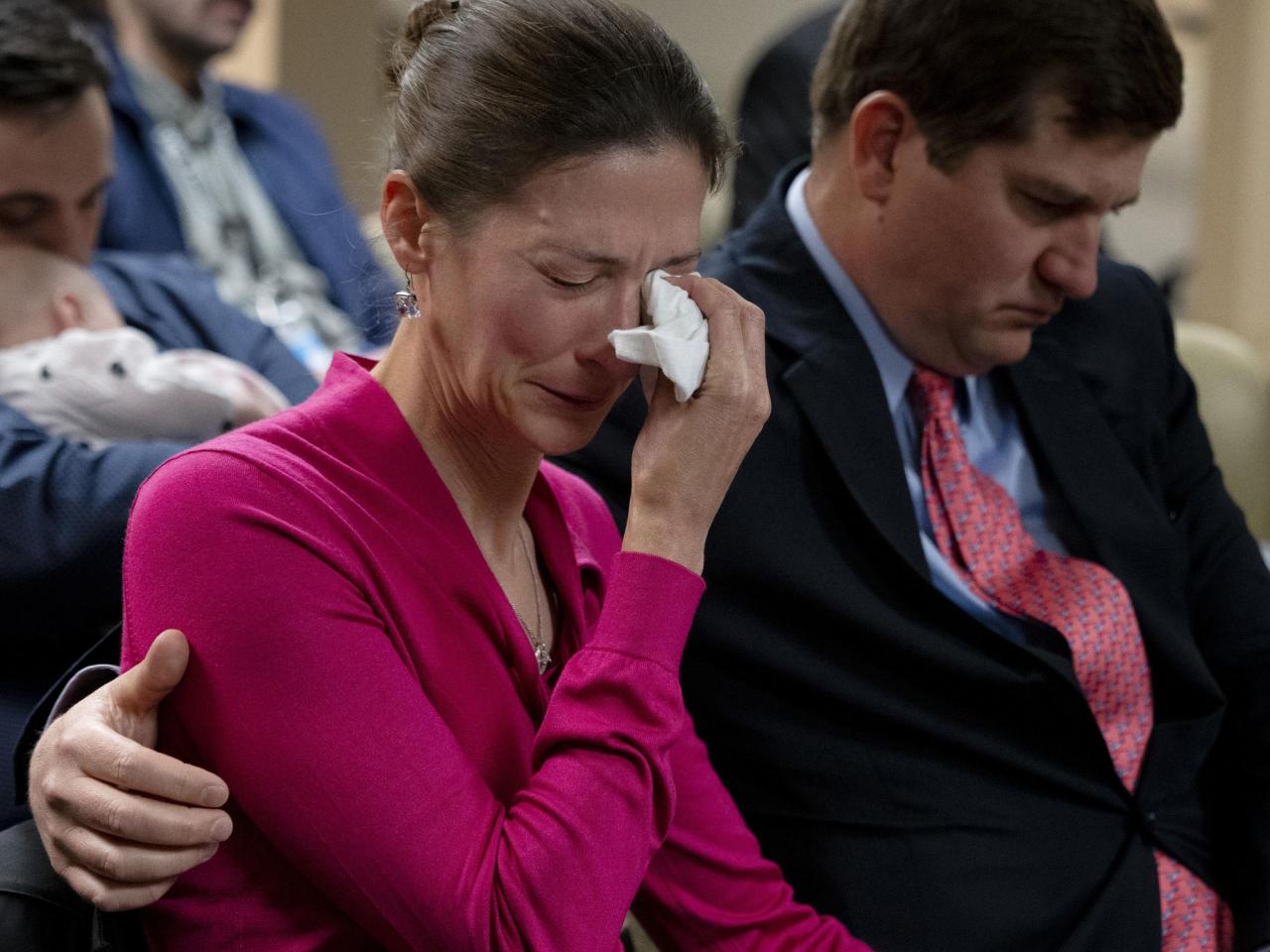Tennessee court to weigh throwing out abortion ban challenge, blocking portions of the law
NASHVILLE, Tenn. (AP) — Attorneys defending Tennessee’s sweeping abortion ban alleged Thursday that doctors challenging the law do not want any oversight when deciding to terminate a pregnancy and instead are improperly withholding care to women facing serious medical emergencies.
The Tennessee Attorney General’s office laid out its arguments while attempting to persuade a three-judge panel to dismiss a lawsuit seeking to clarify when abortion exceptions can be applied in the Volunteer State.
Seven women and two doctors have launched a legal battle alleging current law violates pregnant patients’ right to life as guaranteed by the state’s constitution. They want the judicial panel to clarify the circumstances that qualify patients to legally receive an abortion. Among the circumstances they want included are fatal diagnoses.
While the judges repeatedly told attorneys not to read too much into their questions, one chancellor cast doubt that they could clarify a law that was approved by the General Assembly.
“You’re basically asking us to redline what the statute says … the big concern is that I’m not sure that we can do what you’re asking us to do,” said Chancellor Kasey Culbreath, one of the judges.
Both sides presented their case to the three judges during a lengthy Thursday hearing. A decision on whether to dismiss the case or temporarily block the abortion ban is expected once the panel reviews the full case.
“Plaintiffs very much, and this is a shared policy view by many in the medical profession, do not want any sort of governmental scrutiny on their use, on their medical decision-making,” said Whitney Hermandorfer, arguing on behalf of the attorney general’s office. “And that’s not been how things have worked in the abortion context.”
The Center for Reproductive Rights, which is representing the women and doctors, countered that the GOP-dominated General Assembly wrote the state’s abortion ban so overly broad and vague that doctors have no choice but to operate in fear that their decisions on whether to perform an abortion will be second-guessed, undermined and potentially be used to bring career-ending charges against them.
“Doctors are denying or delaying abortion care in cases where even defendants concede it would be legally permissible,” said Linda Goldstein, an attorney with the center. “They are doing this because the terms of the medical necessity exception are vague and do not give them enough guidance.”
Many of the women suing the state attended Thursday’s hearing, at times wiping away tears as both attorneys took turns sharing details of their severe pregnancy complications and discussed what doctors should have done in their individual cases.
Among the plaintiffs is Rebecca Milner, who learned she was pregnant with her first child in February 2023 after several years of unsuccessful fertility treatments.
According to court documents, Milner was told at a 20-week appointment that the amniotic fluid surrounding her baby was low. A specialist later said that her water had broken likely several weeks before and that nothing could be done to save the baby.
However, her doctor said that Tennessee’s abortion ban prohibited abortion services in her situation because the ban only explicitly lists ectopic pregnancies and miscarriages as legally allowed exemptions.
“Miss Milner went to Virginia for an abortion, and when she returned, she was diagnosed with sepsis,” Goldstein said. “That had resulted because of the delay receiving abortion care.”
As part of their reasoning to dismiss the lawsuit, the state’s legal team argued that the plaintiffs do not have standing. Hermandorfer pointed out that the two doctors involved in the lawsuit likely didn’t face a risk of prosecution because they work in Nashville and the local district attorney in that county has previously declared that he wouldn’t prosecute abortion providers.
However, Chancellor Patricia Head Moska countered that that statement was not legally binding and that the state’s Attorney General could intervene and request a court appoint a separate district attorney to push forward with charges.
